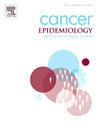低收入和中等收入国家的乳腺癌特征:概括性综述
IF 2.3
3区 医学
Q3 ONCOLOGY
引用次数: 0
摘要
乳腺癌是低收入和中等收入国家(LMICs)面临的重大挑战,因为在获得医疗保健和结果方面存在差异。本综述综合了乳腺癌特征的数据——诊断年龄、分期和分子亚型——以指导中低收入国家有针对性的医疗保健策略。我们的总体审查是按照PRISMA 2020和JBI指南进行的。2009年至2024年的系统评价来自PubMed、b谷歌Scholar和Cochrane。用AMSTAR 2对评价进行评估,只包括那些被评为中等或更高的评价。使用r进行数据综合和荟萃分析。从1165份记录中,35份系统评价符合初始标准;9项纳入最终综合,代表305项主要研究(195项与中低收入国家相关)。其中,50% %以医院为基础,22% %以人群为基础,这限制了数据的普遍性和促进更多以人群为基础的研究的重要性。系统评价的总体质量是可变的,只有少数达到了高标准。地理分析显示,在撒哈拉以南非洲和拉丁美洲,高质量综述的代表性明显不足。诊断年龄各不相同:撒哈拉以南非洲(45-52岁)、中东(36-56岁)和拉丁美洲(49-53岁)。晚期诊断(III期和IV期)很常见,预后恶化。分子亚型分析表明,luminal a占主导地位,但由于靶向治疗途径有限,强调了治疗挑战。研究结果强调,迫切需要提高初级数据的可得性和质量,包括以医院和人口为基础的研究,特别是在撒哈拉以南非洲和拉丁美洲等代表性不足的地区。通过严格的、以当地为重点的研究来解决这些差距,对于改善乳腺癌的预防、诊断和治疗至关重要。提高方法标准和扩大这些领域的研究对于弥合全球乳腺癌结果差异至关重要。本文章由计算机程序翻译,如有差异,请以英文原文为准。
Breast cancer characteristics in low- and middle-income countries: An umbrella review
Breast cancer presents significant challenges in low- and middle-income countries (LMICs) due to disparities in healthcare access and outcomes. This umbrella review synthesizes data on breast cancer characteristics—age at diagnosis, staging, and molecular subtypes—to guide targeted healthcare strategies in LMICs. Our umbrella review was conducted following PRISMA 2020 and JBI guidelines. Systematic reviews from 2009 to 2024 were sourced from PubMed, Google Scholar, and Cochrane. Reviews were assessed with AMSTAR 2, and only those rated moderate or higher were included. Data synthesis and meta-analyses were performed using R. From 1165 records, 35 systematic reviews met initial criteria; nine were included in the final synthesis, representing 305 primary studies (195 relevant to LMICs). Of those, 50 % were hospital-based and 22 % population-based, limiting the generalizability of the data and the importance of promoting more population-based studies. The overall quality of systematic reviews was variable, with only a few meeting high standards. Geographic analysis revealed a significant underrepresentation of high-quality reviews in sub-Saharan Africa and Latin America. Age at diagnosis varied: sub-Saharan Africa (45–52 years), Middle East (36–56 years), and Latin America (∼49–53 years). Advanced-stage diagnoses (stages III and IV) were common, worsening prognostic outcomes. Molecular subtype analysis indicated a predominance of luminal A but highlighted treatment challenges due to limited targeted therapy access. The results emphasize a pressing need to enhance the availability and quality of primary data, including both hospital-based and population-based studies, particularly in underrepresented regions like sub-Saharan Africa and Latin America. Addressing these gaps with rigorous, locally focused studies is essential for improving breast cancer prevention, diagnosis, and treatment. Enhancing methodological standards and expanding research in these areas will be crucial to bridging global breast cancer outcomes disparities.
求助全文
通过发布文献求助,成功后即可免费获取论文全文。
去求助
来源期刊

Cancer Epidemiology
医学-肿瘤学
CiteScore
4.50
自引率
3.80%
发文量
200
审稿时长
39 days
期刊介绍:
Cancer Epidemiology is dedicated to increasing understanding about cancer causes, prevention and control. The scope of the journal embraces all aspects of cancer epidemiology including:
• Descriptive epidemiology
• Studies of risk factors for disease initiation, development and prognosis
• Screening and early detection
• Prevention and control
• Methodological issues
The journal publishes original research articles (full length and short reports), systematic reviews and meta-analyses, editorials, commentaries and letters to the editor commenting on previously published research.
 求助内容:
求助内容: 应助结果提醒方式:
应助结果提醒方式:


